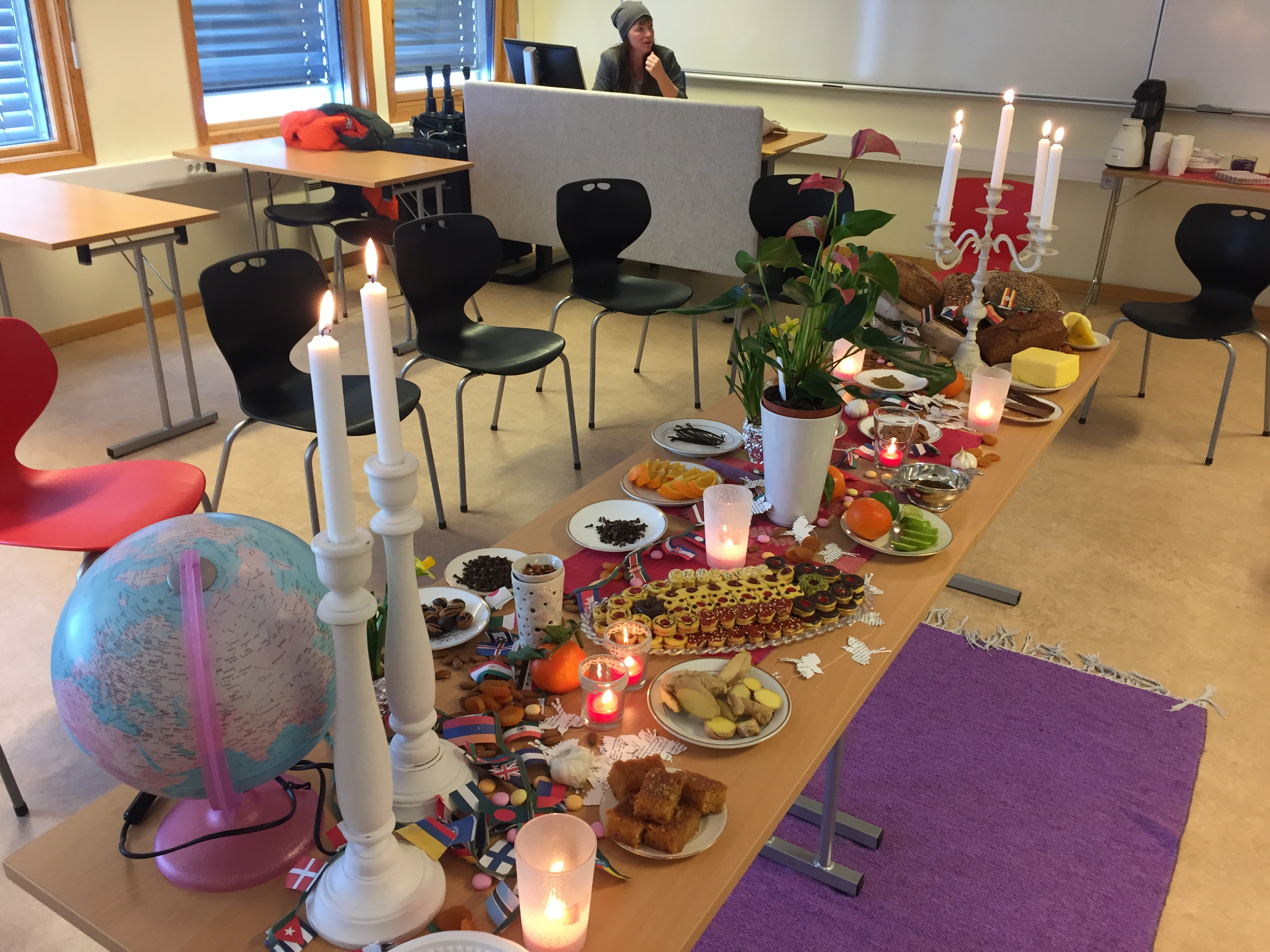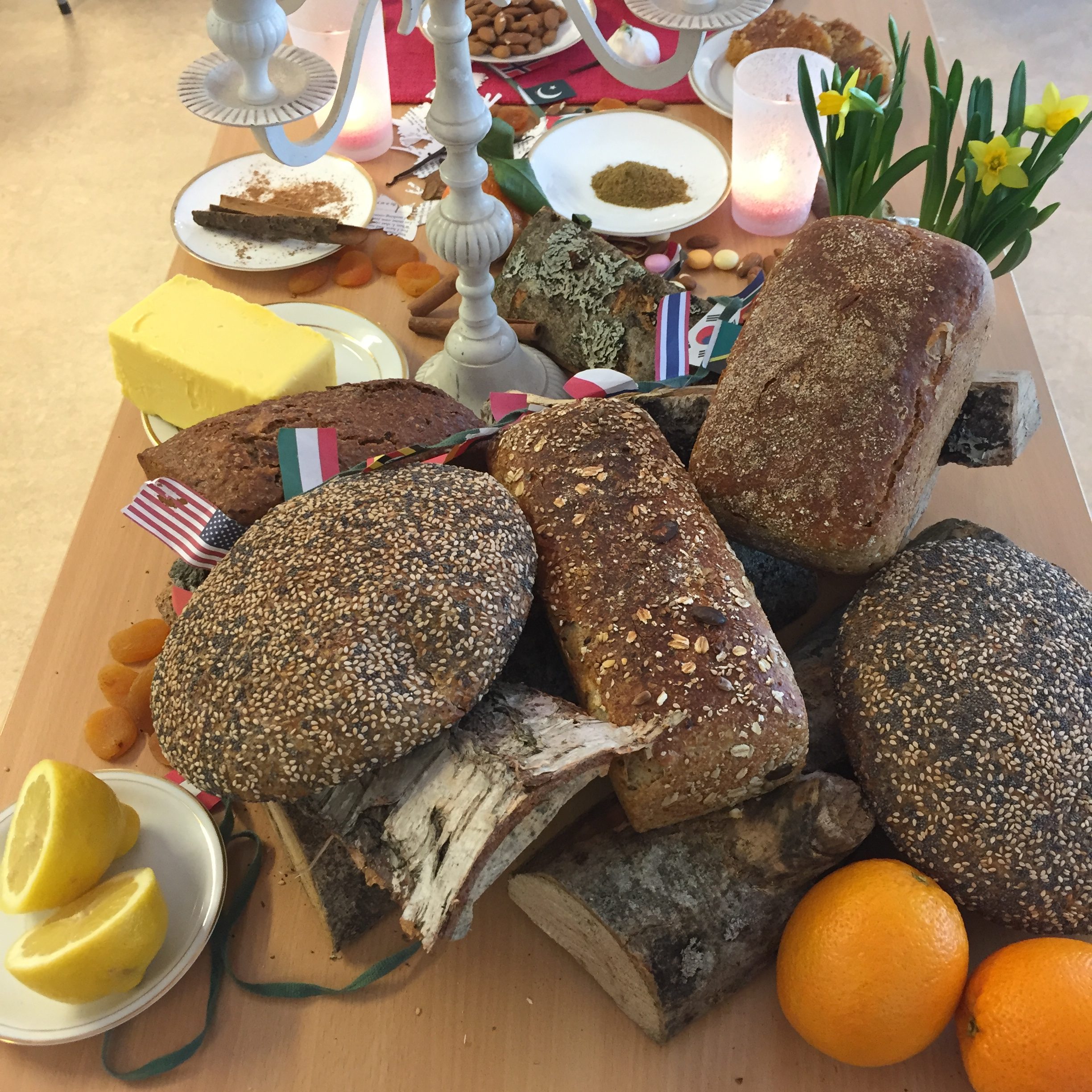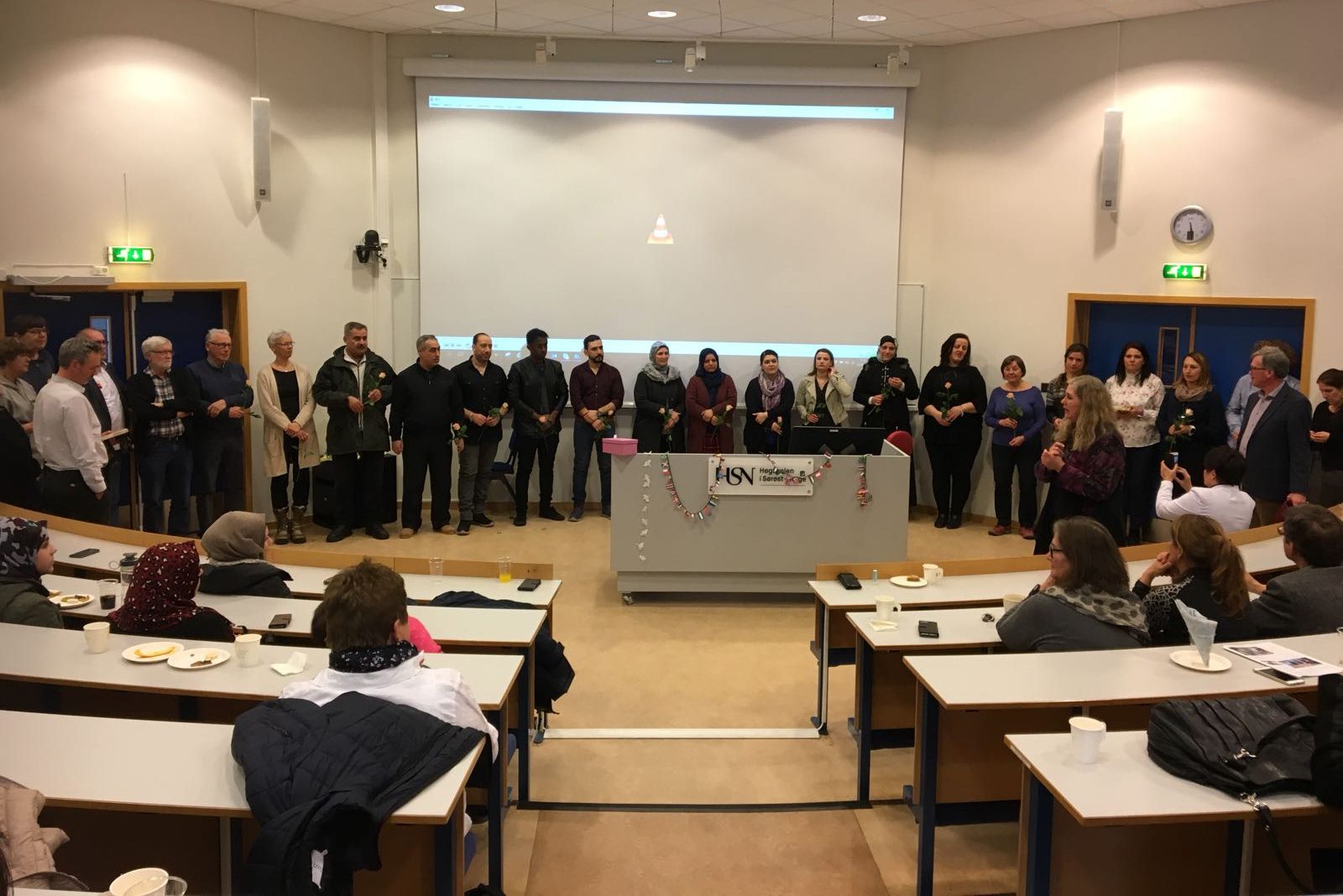Digital storytelling pilot – Porsgrunn, Norway
March 30, 2018
Towards the end of March 2018, Common Good First partners, The University of Southeast Norway in Porsgrunn, Norway, hosted a digital storytelling workshop as part of the municipality’s integration programme for refugees and asylum-seekers. This group was joined by local volunteers and USN Masters’ students, comprising nationals from Syria, Eritrea, Kosovo, Somalia and, of course, Norway.
Our first day featured a series of ice-breaking activities to help prompt story ideas.

Stories flooded out from the circle of participants. These included:
Coffee – ‘my mother making coffee for the whole family, while we sat around her as she ground the beans and served us’ (Eritrea): ‘grinding the beans for my grandfather using an old-fashioned wooden grinder – a sad memory and a happy one’ (Syria)
Dates – ‘the first thing you eat at sunset during Ramadan’ (Syria)
Almonds – ‘making sweet cakes using them’ (Syria)
Cloves – ‘walking to work through narrow streets past markets and smelling spices’ (Syria)
Oranges – ‘picking them off a tree in the garden’ (Syria); ‘oranges at Christmas and Easter’ (Norway)
Ginger – ‘for when you’re sick’ (Norway)
Bread – ‘my Mum making bread at home and us kids having a slice with butter when we came in from playing, while it was still warm’ (Norway)

On Day 2, the group started to formulate their story titles listed in three story circles. These included:
- Despair and joy on the same day (Abdullatif, Syria)
- Journey into the Unknown – Integration together (USN masters students)
- Syria’s Nelson Mandela (Taher, Syria)
- The day I had to say goodbye (Samer, Somalia)
- A diary – the bridge between two worlds (Blerta, Kosovo)
- The last day in my house in Homs (Maisoun, Syria)
- The Journey from East-Goutha to Norway (Amany, Syria)
- Where is my family now? (Melhane,Syria)
- The handkerchief of hope (Abed, Syria)
- A long journey (Ismail, Eritrea)
- A new start (Reem, Syria)
After the story circle, when scripts were finished, a number of storytellers rehearsed their stories to one another or to the volunteers. Norwegian was not the first language of many of the participants so Reem Salameh did amazing work translating from Arabic to Norwegian and back again.
We had initially decided to use Filmora on desktop and tablets but hit some issues with voiceover recording so migrated to another Filmora product, Vlogit We demonstrated this on an overhead projector from an iPad, showing the group basic functionality – pictures and voice. A number of participants downloaded the app then and there onto their phones.
By day 3, most people were using our phone/tablet-based editing app with minimal help, and even those who were new to it amongst the workshop facilitators managed to grasp it well enough to support the attendees.
Participants got creative with mixes, adding music and captions and very quickly got the hang of lengthening or duplicating images to fit the voiceover.
They used their own photos, images from Google and stuff sent to them by family members, including the actual sky that day in Kosovo!
In our team debrief at the end the day, we discussed the level of digital skills our participants might have acquired, the merits of Vlogit, and where there had been challenges, and how some storytellers had coped with difficult memories in telling their stories.
On our final day, the films were finished, with support from the facilitators, and each one had an ‘end board’ added in either English or Norwegian.
During that afternoon, the participants ‘premiered’ their digital stories in front of friends and family. It was a moving and uplifting event and a fitting end to several days of hard – and emotional – work by both the migrants and their Norwegian ‘hosts’.

Finally, here’s a short film summarising the successful digital storytelling pilot.

